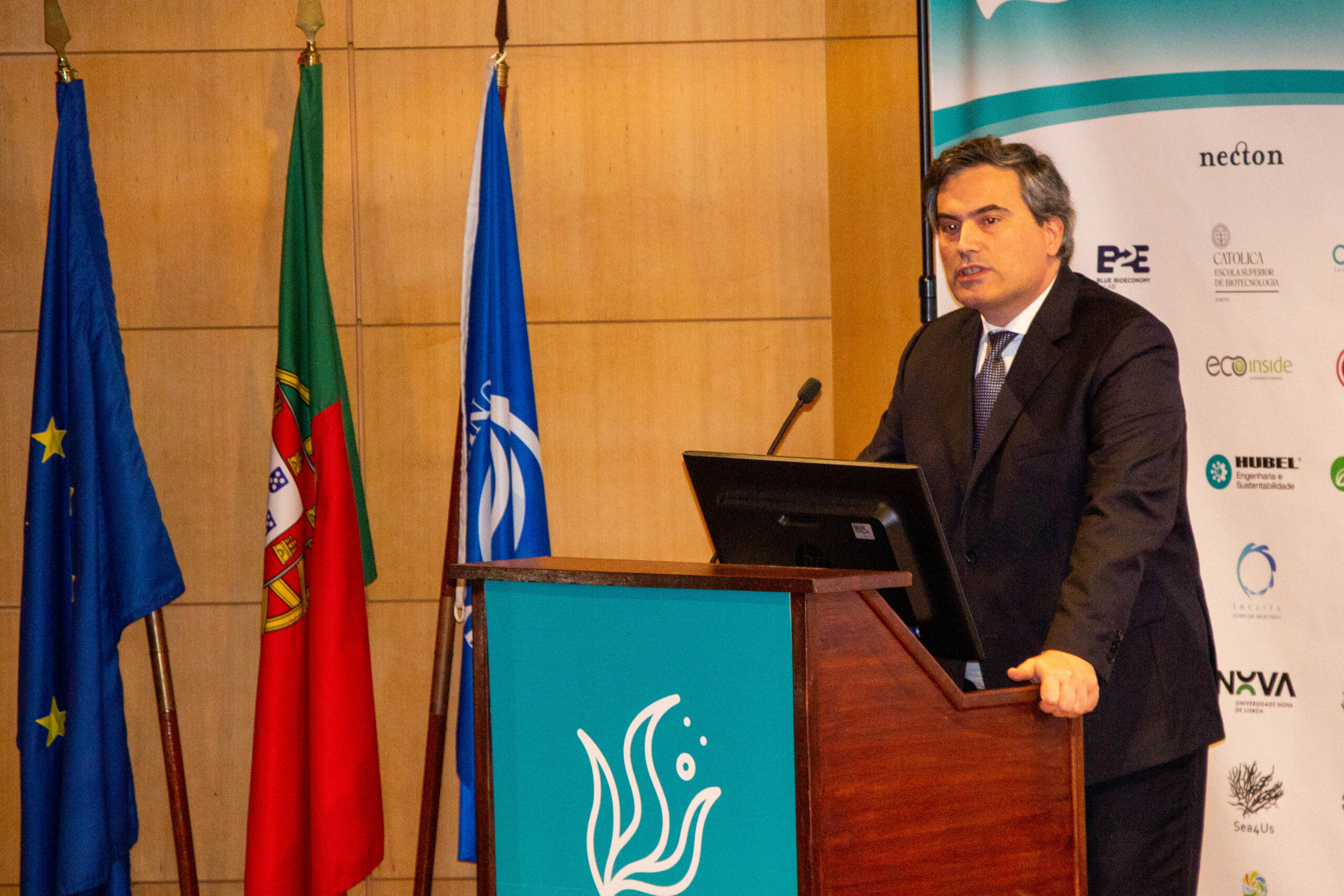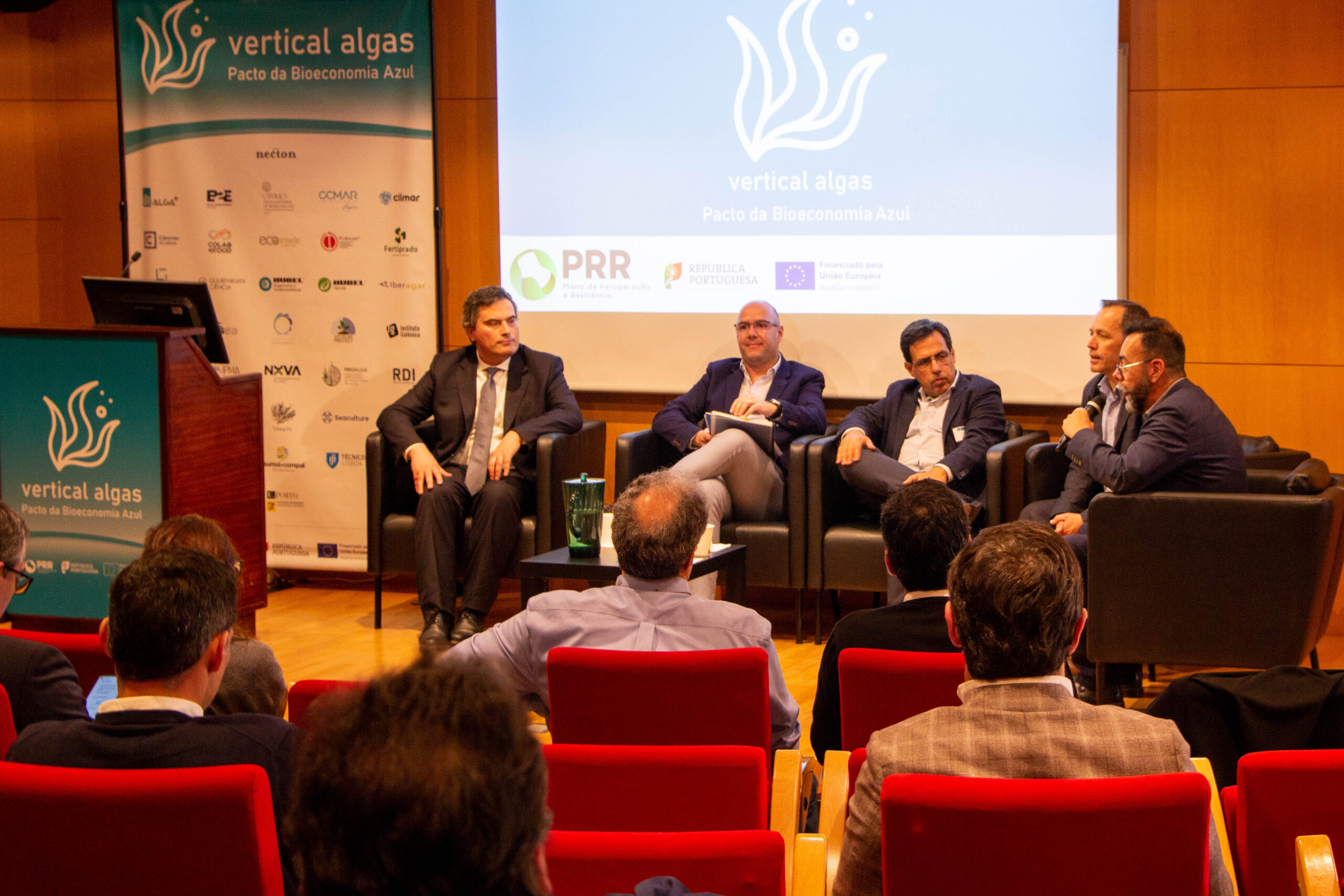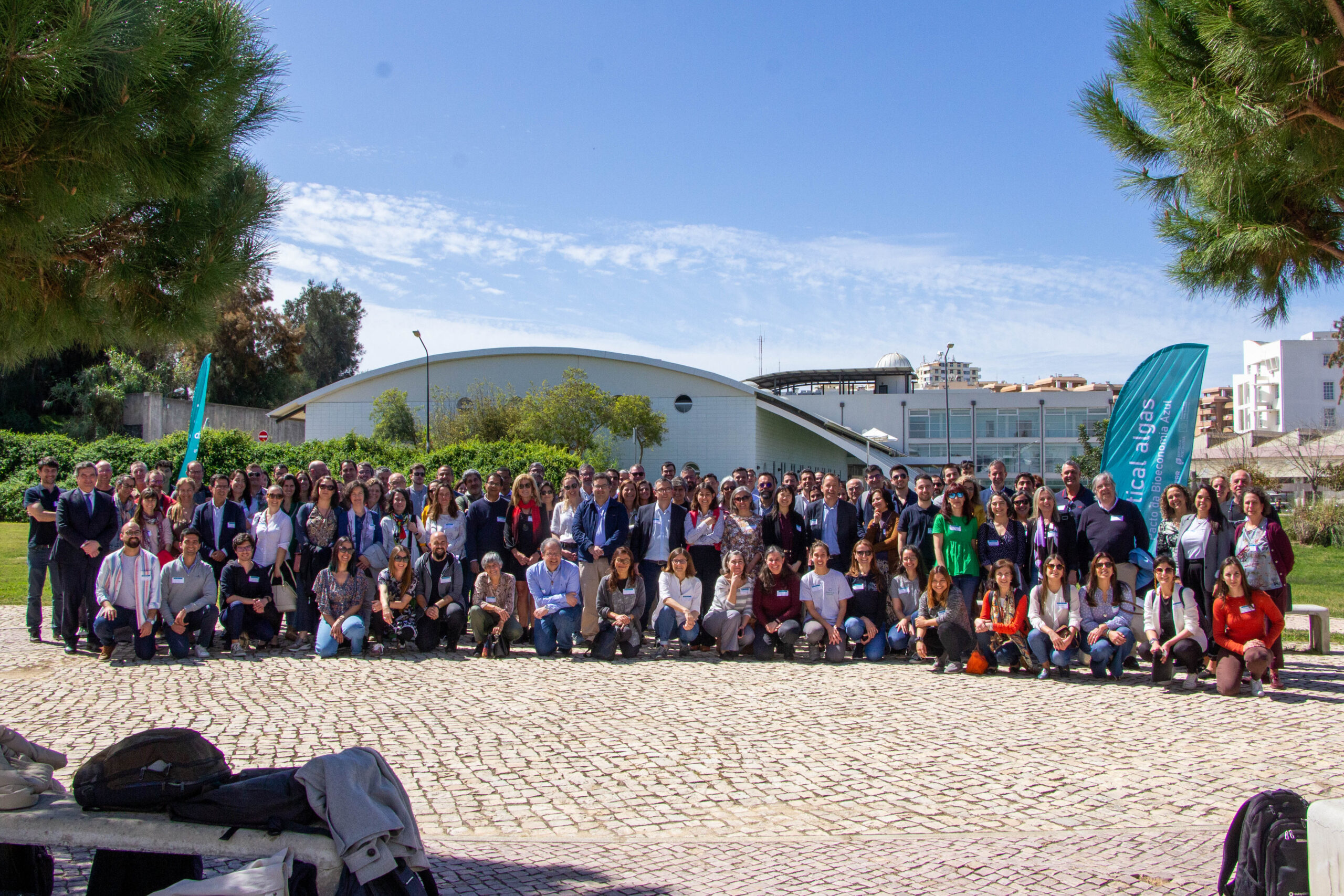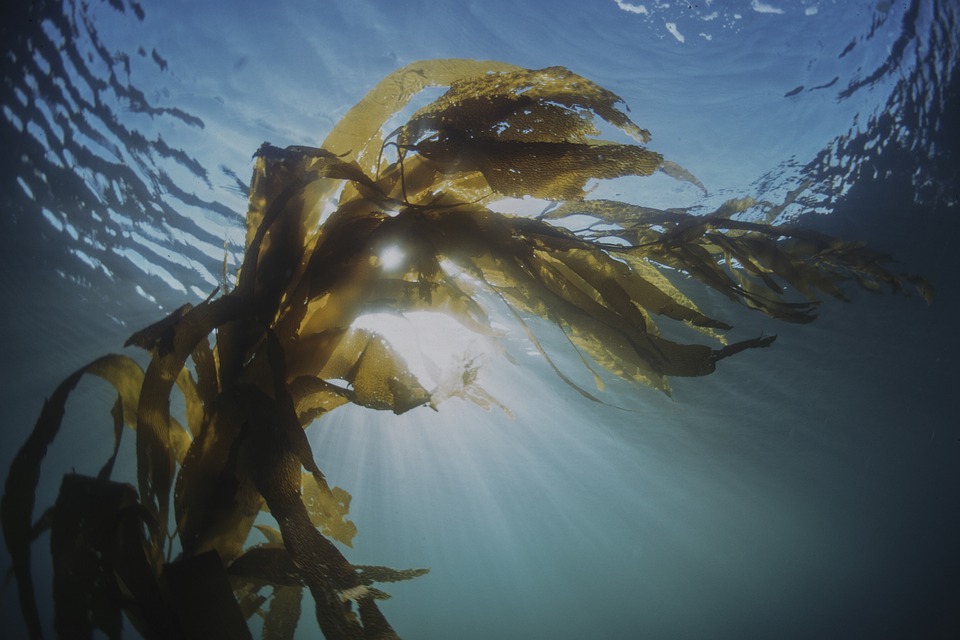Creating, by December 31, 2025, more than 52 new types of products, processes and services that use blue biotechnology is the main objective of the Vertical Algae project, whose launch meeting took place this Monday, March 27, at Campus da Penha of the University of Algarve.
It is a new “sustainable, innovative and decarbonising paradigm, which finds in the sea an answer to the challenge of the global scarcity of land resources” and which is part of the Blue Bioeconomy Mobilizing Agenda of the Recovery and Resilience Plan (PRR).
Develop new marine-based thermoplastic resins for the cork sector; create a new paradigm for clam production – making it independent from natural sediment banks; use seaweed and marine litter to produce fabrics and meshes for clothing and footwear; develop new food products; scale up sustainable algae cultivation and processing; developing new products for animal feed or creating new methods for monitoring and tracking systems for fish and wild fish are some of the results that the project intends to achieve in about three years.
Miguel Marques, chairman of the Executive Board of Directors of Inovamar (leading company of the blue bioeconomy pact which has in its shareholder capital Sociedade Francisco Manuel dos Santos, the Amorim Group, fresh ocean, TMG, Canreal, Necton, ETSA and Sonae), speaks of an «ambitious agenda», but aware of the potential of those who are working to make it a reality.
«Portugal is good at many things and this agenda will also show that. We have a vision for a Portugal that, with pioneering spirit, wants to develop blue biotechnology. We want to contribute to the reindustrialization and decarbonization of the Portuguese economy through the blue economy», he stressed during the launch meeting of one of the seven secondary projects of the consortium, linked to the use of algae.

This is a project involving 38 Portuguese entities, 11 of which from the Algarve, led by the Algarve company Necton, which will create new sustainable products, processes and services from seaweed, and which has a total investment of 133 million euros. euros, 94 of which are shared by the PRR.
Despite the fact that it is a «completely national» pact, Miguel Marques does not fail to highlight the importance that the Algarve region has for its development and progress, due to the scientific research that it has already applied in relation to the subject of algae.
This is an aspect also praised by the Dean Paulo Águas, who says that «the University of the Algarve feels that there is a lot of blood in this project».
«The knowledge we now have about these potentialities is only possible because work was carried out over many years, which today gives us the skills to be able to move towards an innovative project that will transform the economy, not only in the region, but also in the country and even the world", he confessed to the Sul Informação.
For Pedro Valadas Monteiro, Regional Director of Agriculture and Fisheries of the Algarve, the project launched yesterday symbolizes «an enormous world of potential».
«It is a path that has to be taken, there is no turning back. We are facing a world population that will quickly reach 9 billion. The planet does not stretch, and therefore we cannot destroy it to produce these foods. We have to be imaginative in the way we manage to feed ourselves: the big challenge will be to get protein and seaweed can be an option », he said.

Based on sustainability, the Blue Bioeconomy Pact also intends to contribute to decarbonization, while responding to the crisis that the world has been experiencing in recent times.
«We all know that, in a certain way, the country and the world live in an unstable situation, for several reasons. Regardless of the pandemic crises or the crises that have to do with conflicts, the national economy already noticed a need for a paradigm shift», said Miguel Marques, pointing out that the path is towards «a decarbonized economy» for which this project will contribute.
The main objectives of the project are, therefore, «to boost the development of a cutting-edge industrial economic sector», «to be the first major showcase of the transversal and ecological potential of marine biotechnology solutions», «to contribute to positioning Portugal in the global context as a pioneer of a sector that is estimated to reach 200 billion globally in 2030» and «to materialize the great opportunity for growth and innovation of the maritime industries».
Asked if he believes that the new dozens of products and services will be accepted, Miguel Marques says yes.
«We are a necessary step towards something that has been built for several years – I would say for more than two decades. Certainly, there will be new products that will need to work their market better, but much of what we are doing here will generate new products that already have concrete needs in various industries, namely food», he concludes.
The Blue Bioeconomy Pact brings together 83 national entities, from large to small and medium-sized companies, start-ups and research and development institutions, which aim to contribute to «a paradigm shift» in the country.




















Comments